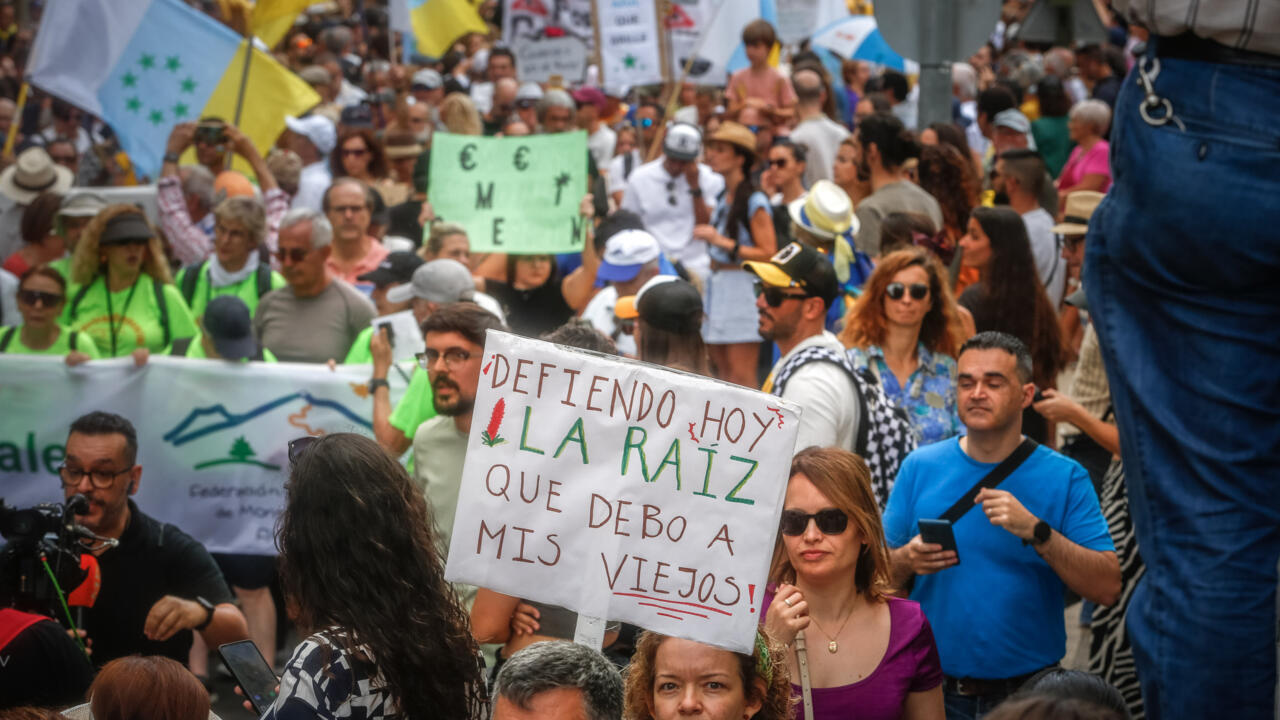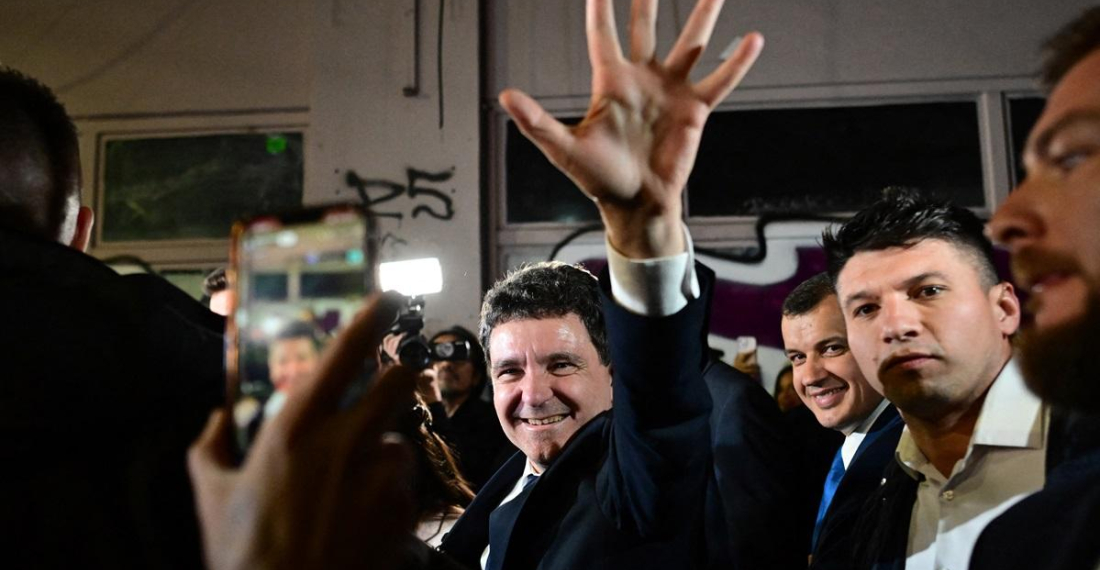In an era where a single moment can spiral into a global spectacle, a seemingly minor incident involving a German tourist at the US Embassy in Tel Aviv has become a lightning rod for debates on geopolitics, cultural tensions, and the power of social media. On May 19, 2025, a 27-year-old German national was arrested after allegedly spitting at security guards and leaving a bag containing flammable materials outside the US Embassy branch office in Tel Aviv. What began as a fleeting act of defiance quickly escalated into a firestorm of controversy, raising questions about individual motivations, international relations, and the broader implications of such acts in a volatile world. This article delves into the incident, its fallout, and the complex web of social, political, and psychological factors that transformed a small moment into a global conversation.
1. The Incident: A Moment of Defiance
On a seemingly ordinary Monday afternoon in Tel Aviv, a 27-year-old German tourist approached the US Embassy branch office on HaYarkon Street. According to reports from Israeli police, the individual engaged in a verbal altercation with security guards, spat in the face of one of them, and then fled the scene, leaving behind a suspicious backpack. Bomb disposal units were summoned, and upon inspection, the bag was found to contain flammable substances, glass bottles, and loose socks—materials consistent with those used to assemble Molotov cocktails. The suspect was apprehended hours later in central Tel Aviv and confessed to the act, citing “anger toward the American government” as his motive. The Times of Israel, Israel National News, and JNS.org reported the incident, noting the suspect’s explicit social media posts that hinted at his intentions to “burn” the embassy.
[](https://www.timesofisrael.com/liveblog_entry/german-tourist-arrested-for-spitting-at-us-embassy-guards-in-tel-aviv-leaving-flammable-material/)[](https://www.israelnationalnews.com/news/408616)[](https://www.jns.org/german-detained-after-attacking-us-embassy-building-in-tel-aviv/)The incident, though brief, was far from isolated. It occurred against a backdrop of heightened tensions in the region, with protests outside the US Embassy in Tel Aviv just days earlier on May 15, 2025, calling for an end to the war in Gaza and the release of hostages. The suspect’s actions, while not directly linked to these protests, tapped into a broader sentiment of frustration with American foreign policy, particularly its support for Israel in the ongoing conflict. This small act of defiance—spitting and leaving a bag—became a symbol of deeper grievances, sparking debates that transcended the incident itself.
1.1. The Context: A Charged Atmosphere
The US Embassy in Tel Aviv has long been a focal point for protests, given the United States’ role as a key ally of Israel. The May 15 demonstration by Israeli mothers demanding a ceasefire and hostage release underscored the emotional weight of the ongoing Gaza conflict. The German tourist’s actions, occurring just four days later, were perceived by some as an opportunistic expression of anti-American sentiment. However, others questioned whether the incident was a spontaneous outburst or part of a coordinated effort, given the suspect’s social media activity. Posts on platforms like X suggested he had telegraphed his intentions, with one user noting that the tourist had explicitly mentioned targeting the embassy.
The suspect’s confession during interrogation—that his actions stemmed from anger toward the US government—added fuel to the speculation. Was this an isolated act of frustration, or did it reflect a broader wave of anti-American sentiment in Europe and beyond? The presence of flammable materials raised concerns about potential violence, prompting authorities to investigate whether the suspect had ties to extremist groups or was acting alone. Initial reports found no evidence of organizational affiliations, but the incident drew parallels to other recent attacks on diplomatic missions, such as the arrest of a Libyan national in Germany in October 2024 for allegedly planning an attack on the Israeli Embassy in Berlin.
[](https://www.euronews.com/my-europe/2024/10/20/man-suspected-of-planning-attack-on-israel-embassy-arrested-in-germany)2. From Local Incident to Global Controversy
What might have remained a minor police matter in Tel Aviv quickly snowballed into an international controversy, amplified by the reach of social media and the polarized climate of global politics. The incident was covered extensively by outlets like Israel Hayom, The Jerusalem Post, and Qatar Tribune, each framing the event through different lenses—security concerns, diplomatic tensions, and anti-American sentiment. The story resonated far beyond Israel, with discussions on X and other platforms highlighting the incident as a flashpoint for broader issues, including the ethics of protest, the limits of free expression, and the role of foreign nationals in local conflicts.
[](https://www.israelhayom.com/2025/05/20/join-me-as-i-burn-us-embassy-german-tourists-bizarre-firebombing-attempt/)[](https://www.qatar-tribune.com/article/177308/world/tourist-held-in-tel-aviv-after-molotov-materials-left-at-us-embassy)[](https://www.jpost.com/breaking-news/article-854598)2.1. The Role of Social Media in Amplifying the Incident
Social media platforms, particularly X, played a pivotal role in transforming this incident into a global talking point. Posts on X, such as those from @ArutzSheva_En and @nivcalderon, detailed the arrest and the suspect’s motives, garnering thousands of views and sparking heated debates. Users were divided: some condemned the tourist’s actions as reckless and dangerous, while others saw them as a legitimate, if extreme, expression of dissent against American foreign policy. One X user commented,
“Spitting and Molotov materials? This guy wasn’t just angry—he was planning something serious. Embassies are off-limits.”Another countered,
“People are fed up with the US backing wars. This is what happens when diplomacy fails.”
The rapid spread of the story on social media illustrates the platform’s double-edged sword: it amplifies voices but also fuels polarization. A 2023 study by the Pew Research Center found that 60% of adults believe social media is a major source of false information, yet it remains a primary news source for many. In this case, unverified claims about the suspect’s motives—ranging from mental instability to extremist affiliations—circulated widely, complicating the narrative. Fact-checking organizations, such as Snopes, later clarified that no evidence linked the suspect to terrorist groups, but the initial wave of speculation had already shaped public perception.
2.2. Misinformation and the Need for Verification
The incident highlighted the dangers of misinformation in the digital age. Early reports on X and other platforms suggested the tourist was part of a larger anti-American or anti-Israeli plot, with some users citing his German nationality to draw connections to rising far-right or far-left movements in Europe. These claims were largely debunked by police statements, which emphasized the suspect’s lone-wolf status and personal grievances. Israel National News reported that the suspect’s interrogation revealed no ties to organized groups, and his social media posts were deemed impulsive rather than part of a coordinated campaign.
[](https://www.israelnationalnews.com/news/408616)Despite these clarifications, the incident underscored the challenges of combating misinformation in real time. A 2024 report by the World Association of News Publishers noted that false narratives can spread up to six times faster than accurate ones on social media, particularly during politically charged events. The German tourist’s case became a case study in how quickly a single act can be distorted to fit competing narratives, from anti-Americanism to accusations of antisemitism.
3. Cultural and Political Implications
The incident in Tel Aviv was not just a security breach; it was a cultural and political lightning rod. The act of spitting, often seen as a universal gesture of contempt, carried particular weight in the context of diplomatic relations. Combined with the flammable materials, it raised questions about the boundaries of protest and the symbolism of targeting a foreign embassy.
3.1. Spitting as a Symbol of Disrespect
Spitting has long been a potent symbol of disdain across cultures. In the context of diplomatic missions, it carries additional weight, as it directly challenges the sanctity of international representation. A similar incident occurred in 2019, when an Israeli man spat on the Polish ambassador in Tel Aviv, sparking a diplomatic row. Poland condemned the act as a “xenophobic act of aggression,” and the perpetrator was placed under house arrest. The German tourist’s actions echoed this earlier event, prompting comparisons and debates about whether such acts constitute hate crimes or protected forms of expression.
[](https://www.timesofisrael.com/polish-ambassador-assaulted-in-tel-aviv-amid-ongoing-tensions/)[](https://www.thejc.com/news/israel/israeli-man-arrested-after-spitting-on-polish-ambassador-in-tel-aviv-ufj0azer)In the Jewish cultural context, spitting can carry specific connotations. Historically, it has been associated with warding off evil or expressing disdain, as seen in certain traditional practices. However, in modern Israel, spitting at individuals—particularly diplomats or security personnel—is viewed as a provocative and disrespectful act. The German tourist’s decision to spit at US Embassy guards was thus interpreted by some as an attack not only on American policy but also on Israeli sovereignty, given the embassy’s location.
3.2. The Geopolitical Backdrop
The incident occurred at a time of heightened global tensions, particularly surrounding the Israeli-Palestinian conflict and US foreign policy. The US has faced criticism for its unwavering support of Israel, especially during the Gaza conflict, which has fueled anti-American sentiment in parts of Europe and the Middle East. A 2025 Gallup poll indicated that 45% of Europeans view US foreign policy unfavorably, with particular discontent over its Middle East strategy. The German tourist’s stated motive—anger at the American government—aligned with this broader sentiment, though his actions were widely condemned as reckless.
The incident also drew attention to the vulnerability of diplomatic missions. In recent years, embassies have been targets of protests and attacks worldwide, from the 2012 Benghazi attack to the 2024 explosions near the Israeli Embassy in Copenhagen. The Tel Aviv incident, while less severe, underscored the challenges of securing diplomatic facilities in politically volatile regions. The US Embassy in Jerusalem issued a security alert on March 22, 2025, citing the “evolving security situation” in Israel, the West Bank, and Gaza, further highlighting the tense atmosphere.
[](https://www.euronews.com/2024/10/02/two-explosions-heard-near-israeli-embassy-in-copenhagen)[](https://il.usembassy.gov/security-alert-march-22-2025/)4. Psychological and Sociological Perspectives
Beyond the political and cultural dimensions, the incident raises questions about the psychological and sociological factors that drive individuals to commit such acts. Why would a tourist, far from home, engage in behavior that could lead to serious legal consequences? What broader societal trends might explain this outburst?
4.1. The Psychology of Protest
Psychologists argue that acts like spitting or leaving flammable materials can be expressions of “displaced aggression,” where individuals channel their frustration with larger systems—such as governments or institutions—onto immediate targets. A 2022 study in the Journal of Social Psychology found that individuals experiencing political alienation are more likely to engage in symbolic acts of defiance, such as vandalism or public displays of contempt. The German tourist’s actions fit this pattern, as his stated anger at the US government suggests a broader disillusionment with global power structures.
Moreover, the tourist’s social media posts, which hinted at his intentions, point to the role of digital validation in such acts. The phenomenon of “performative activism”—where individuals seek attention or approval through public displays of dissent—has become increasingly common in the social media age. The suspect’s explicit posts about targeting the embassy suggest he may have been seeking a platform to amplify his grievances, even if his actions were impulsive.
4.2. The Sociology of Anti-Americanism
Anti-American sentiment has deep roots in global politics, often tied to perceptions of US imperialism or cultural hegemony. In Europe, this sentiment has been fueled by events like the Iraq War, drone strikes, and, more recently, US support for Israel in the Gaza conflict. A 2024 study by the European Council on Foreign Relations found that 38% of Germans view the US as a “negative influence” on global stability, a sentiment that may have influenced the tourist’s actions. While his act was not representative of broader German opinion, it tapped into a vein of frustration that resonates with certain segments of the population.
The incident also reflects the growing trend of “citizen diplomacy,” where individuals take it upon themselves to express political views through direct action. This phenomenon is particularly pronounced among younger generations, who, according to a 2025 Pew Research Center report, are more likely to engage in unconventional forms of protest, from boycotts to public stunts. The German tourist, though not a young activist, fits this mold of an individual seeking to make a statement through dramatic action.
5. The Aftermath: Legal and Diplomatic Ramifications
The arrest of the German tourist had immediate legal and diplomatic consequences. Israeli authorities detained the suspect for questioning, and the US Embassy in Jerusalem issued a statement declining to comment on the ongoing investigation. The incident prompted discussions about the safety of diplomatic personnel and the need for enhanced security measures at embassies worldwide.
[](https://www.columbusjewishnews.com/jns/german-detained-after-attacking-us-embassy-building-in-tel-aviv/article_3e3d4537-bf5e-557b-b157-3f0e5422b072.html)5.1. Legal Consequences
Under Israeli law, acts such as spitting on security personnel and leaving materials that could be used for violence are serious offenses. The suspect faces potential charges of assault, vandalism, and possibly attempted arson, given the flammable materials in his backpack. The Jerusalem Post reported that the tourist’s confession could lead to a swift prosecution, though his status as a foreign national complicates the legal process. International law, including the Vienna Convention on Diplomatic Relations, protects diplomatic missions from such acts, and the incident may result in formal charges under international statutes.
[](https://www.jpost.com/breaking-news/article-854598)Comparisons have been drawn to a 2019 incident in Switzerland, where a man was fined 6,900 francs for spitting on a Russian consulate sign, an act deemed a “political offense” violating international relations. The Tel Aviv case, however, is more severe due to the presence of flammable materials, which elevates the potential threat level.
[](https://eadaily.com/en/news/2025/05/05/in-switzerland-a-local-resident-was-fined-for-spitting-on-the-building-of-the-russian-diplomatic-mission)5.2. Diplomatic Fallout
The incident strained relations between Israel, Germany, and the US, though all parties sought to downplay its significance. German authorities issued a statement condemning the tourist’s actions, emphasizing that they did not reflect official German policy. The US Embassy’s decision to refrain from commenting suggests a desire to avoid escalating the situation diplomatically. However, the incident added to existing tensions, particularly in light of recent criticisms of US foreign policy by European leaders.
The broader diplomatic context is critical. In early 2025, French-Israeli tensions had mounted over France’s push for Palestinian state recognition, and the Tel Aviv incident risked further complicating multilateral relations. The German tourist’s actions, while not state-sponsored, highlighted the challenges of managing individual acts of protest in an interconnected world.
[](https://www.timesofisrael.com/liveblog_entry/german-tourist-arrested-for-spitting-at-us-embassy-guards-in-tel-aviv-leaving-flammable-material/)6. Lessons and Reflections
The Tel Aviv incident serves as a microcosm of the challenges facing the modern world: the clash of individual expression and collective security, the amplifying power of social media, and the fragility of diplomatic relations in a polarized global landscape. It raises important questions about how societies balance free speech with the prevention of violence, and how governments address the root causes of political alienation.
6.1. Balancing Free Expression and Security
The German tourist’s actions, while condemned, spark a broader debate about the limits of protest. In democratic societies, individuals have the right to express dissent, but acts that endanger others—such as leaving flammable materials—cross a legal and ethical line. The incident underscores the need for clear guidelines on what constitutes acceptable protest, particularly in sensitive locations like diplomatic missions.
6.2. Addressing the Roots of Discontent
The suspect’s stated motive—anger at the US government—points to deeper issues of political disillusionment. Governments and institutions must address the underlying causes of such sentiments, whether through dialogue, policy reform, or public engagement. Ignoring these grievances risks further acts of defiance, some of which may escalate into violence.
6.3. The Role of Media and Public Discourse
Finally, the incident highlights the media’s role in shaping public perceptions. Responsible reporting, coupled with rigorous fact-checking, is essential to prevent the spread of misinformation. Media outlets and social media platforms must work together to ensure that narratives are grounded in evidence, rather than speculation or sensationalism.
In conclusion, the German tourist’s actions in Tel Aviv were a small spark that ignited a global conversation. From the symbolism of spitting to the implications of flammable materials, the incident touched on issues of cultural respect, political frustration, and the power of digital amplification. As the world grapples with these complexities, the Tel Aviv incident serves as a reminder that even the smallest acts can have far-reaching consequences in an interconnected age.
















0 Comments